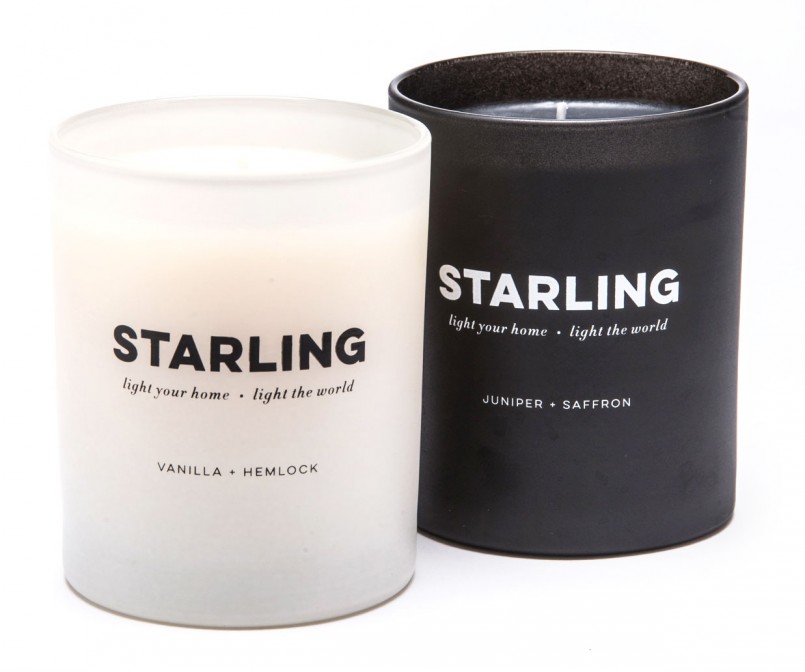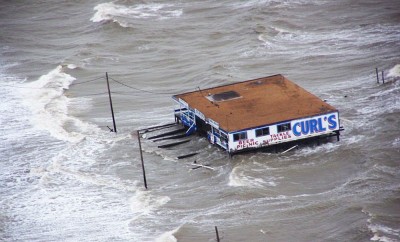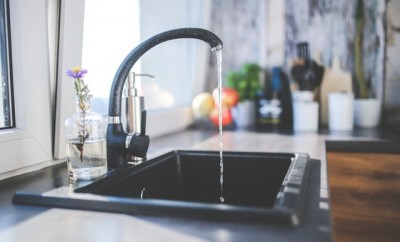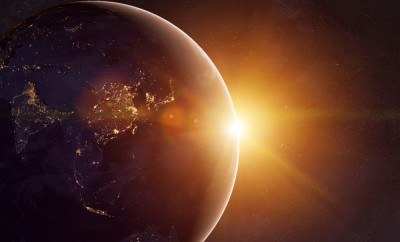Environment
The Starling Project: Lighting the world with clean energy one candle at a time

Image: Starling Project
You’d be hard pressed to find a home without a single candle. It’s nearly impossible to find a store that doesn’t sell them. Candles have practically become a necessity, and they’ve always been symbols of peace and light. With that being said, candles carry a lot of meaning. One such company, The Starling Project, is one of those candlemakers really making the most of the great meaning that candles carry.
Light your home, light the world
So goes the mission of The Starling Project: Our mission is to help provide sustainable solar energy to communities in need around the world.
This innovative company provides solar energy to impoverished communities by selling candles. I had the pleasure of talking to Sterling McDavid, the CEO and founder of The Starling Project about how this mission is accomplished, where the idea came from, and what the project is all about.
How it all began
McDavid traveled to Vietnam, Rwanda and Jamaica with UNICEF on field. Through these opportunities she built strong relationships with the UNICEF team in the U.S. and was immersed in the areas of need in these impoverished countries.
“You hear about extreme poverty in rural areas of the world, but to see it and see solutions being created is incredibly impactful.” McDavid has stuck with UNICEF because “they’re coming up with thought-out solutions to these issues, and they don’t just throw things at the communities; they’re meticulous with long-term solutions. It’s not a one-time thing.”
In Rwanda, which is 80% poverty, UNICEF created an AIDS center for people who received the disease from rape or from their parents. McDavid remembers working in the center and having people hugging her and telling her she changed their lives. The people kept saying how they felt educated, and one person even told McDavid that because of her, he could now be a doctor.
McDavid talked about her time in Vietnam too. There weren’t any toilets, so the chief of the community called UNICEF directly and asked, “70% of our children under 5 are dying, can you come?” The community used the same water for drinking, cooking, and cleaning that they also used as their toilet. And they’ve been doing this for hundreds of years.
With these impactful trips that McDavid was able to join, in addition to knowing that anyone, even teens and college students, can give just a dollar a day to UNICEF and still feed someone for a whole week, led to McDavid’s immense respect and commitment to the organization. “I was overwhelmed by philanthropy in that way,” McDavid says. McDavid is currently the chair on the UNICEF Next Generation board.
Together McDavid and The Starling Project have donated more than $100,000 to UNICEF. And UNICEF is what makes the project possible. They put up solar panels in Chad, Africa, and they have their own expertise and people on the ground. They’re the ones who have relationships with solar companies. Then McDavid takes the role of choosing projects that encompass company goals.
In Chad, a community of more than 5,000 people, UNICEF installed a solar panel in the center of the community to provide not only electricity, but also pipes for clean water. What makes this contribution different from many others is that it’s not a one-time solution, but rather something that will last fifty or more years once it’s been installed. Solar panels ultimately lower rape and help get kids back in school by providing light during early morning and late night hours. Clean water prevents cholera and diarrhea, which has been the reason for so many kids under the age of five to die in this region.
Why solar power?
McDavid chose solar power as the mission of The Starling Project for two reasons. First, she grew up in Texas where everything was about oil.
“It’s polluting, yet so many people’s lives depend on it. I asked myself, what will be the next energy boom? I was then exposed to solar power, and this was a hidden component that later influenced the project.”
The second reason for choosing solar power came after UNICEF educated McDavid on how much it can do, from lasting more than fifty years to providing clean water. This sustainable, clean power source may be expensive, but the maintenance is not.
“I fell in love with how much solar panels can do without breaking down and how sustainable they are. And they’re so easy to put up!”
How will these candles change the world?
McDavid hopes to educate people on how impactful solar energy actually is, how it works, and what UNICEF is doing with solar energy. She wants to make a difference in the people’s lives that The Starling Project is helping. McDavid was given a photo of a woman collecting water by the solar panel, and a translator had written what the woman said: “My children are going to live because I have clean water now.” This reminded McDavid of a quote by Ralph Waldo Emerson that has stuck with her throughout her entire life since hearing it: “To know even one life has breathed easier because you have lived. This is to have succeeded.”
“I just need to hold onto that and remember it and know that children deserve a fair chance at life no matter where they’re from, what religion they practice, and what their demographic is—everyone should have a fair chance.”
Now about the candles
On the surface level, the white and black monochromatic style is a play on light and dark. On a deeper level, a starling is a bird that uniquely exists globally. There aren’t very many bird species that exist in every continent (excluding Antarctica). Starlings come together in formations of tens of thousands. McDavid described this as a dance, “it’s choreographed almost.” They’re beautiful individually, but far more beautiful when they come together, and this can be said of humans too. The Starling Project aims to be a community that gives to another community.
The candles are entirely made in the U.S. The blown glass is made in Brooklyn, and the soy wax and cotton wick come locally. The candles are made with all natural essential oils. McDavid wanted to keep the candles locally made so that the process could be as sustainable as possible. This also ensures that there is no human trafficking, child labor, or abusive labor.
McDavid talked of her love for cooking and how this played into the design of the candles. She likes combining flavors that seemingly don’t make sense. She views candles in a culinary or mixologist sense. Even her perfumist questioned her ideas! But these out-there ideas formed into beautiful, completely original scents. While vanilla is always popular, she adds hemlock for “vanilla with a kick.”
If you wish to join McDavid in this incredible project, head over to The Starling Project to buy a candle knowing you’re helping provide solar energy, clean water, safety, education, and more to a community in need. My personal favorite? Juniper and saffron is simply divine.





0 comments